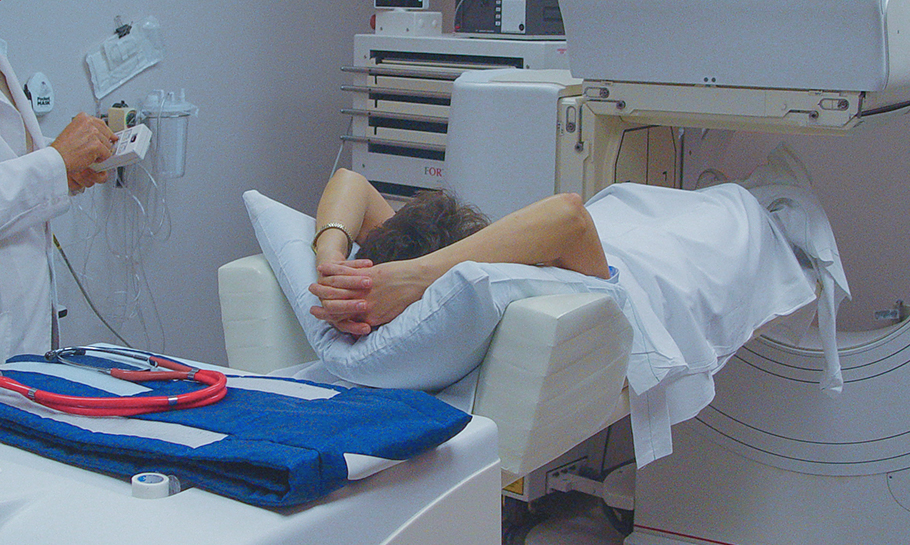Nuclear Medicine

Nuclear medicine involves the use of small amounts of radioactive materials (or tracers) to help diagnose and treat a variety of diseases. Nuclear medicine differs from an X-ray or ultrasound because it determines the cause of the medical problem based on the function of the organ, tissue or bone rather than the structural appearance.
Once the tracer localizes in a specific body organ system, it gives off energy as gamma rays. The gamma camera detects these rays and works with a computer to produce images and measurements of organs and tissues.
The length of time for nuclear medicine procedures can vary, depending on the type of exam.
What you can expect
You will be given a small dose of radioactive material, usually through an IV, but sometimes orally. This localizes in the specific areas of the body being tested. The length of time it takes the tracer to travel through the body varies depending on the type of scan. It may take several seconds to several days for the substance to accumulate in the organ under study.
When it is time for the imaging to begin, the camera or scanner will take a series of images. The camera may rotate around you or it may stay in one position and you will be asked to change positions between images.
In order to capture the highest quality pictures, you will need to remain still for brief periods of time and in some cases, the camera may move very close to your body. Please let us know if you are feeling claustrophobic. After the procedure, a physician who specializes in nuclear medicine the images and sends a report to your referring physician.
How to prepare
You may be asked to wear a gown during the exam or you may be allowed to wear your own clothing. Women should always inform their physician or technologist if there is any possibility that they are pregnant or if they are breastfeeding.
Be prepared to inform the physician and technologist performing your exam of any medications you are taking, including vitamins and supplements. Share if you have any allergies, recent illnesses or other medical conditions.
Please leave all jewelry and other metallic accessories at home if possible as they may interfere with the procedure.
You will receive specific instructions regarding the type of scan you are undergoing.
In some instances, certain medications or procedures may interfere with the examination ordered.